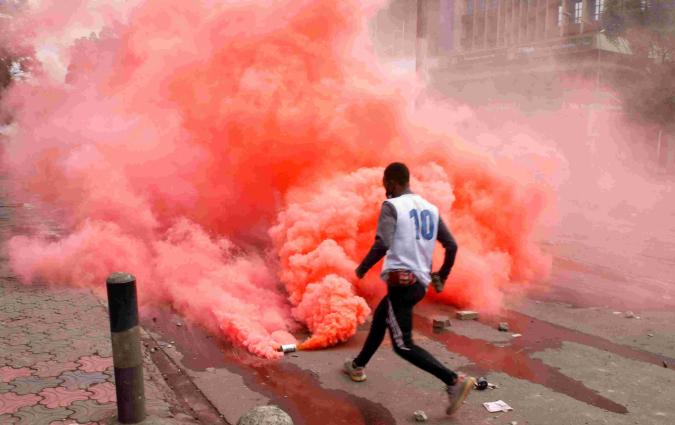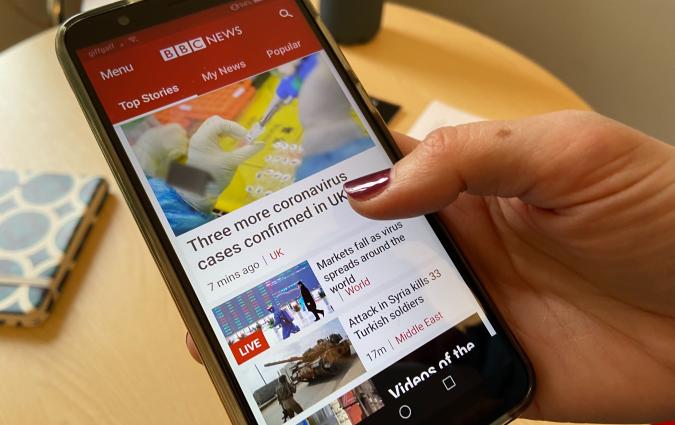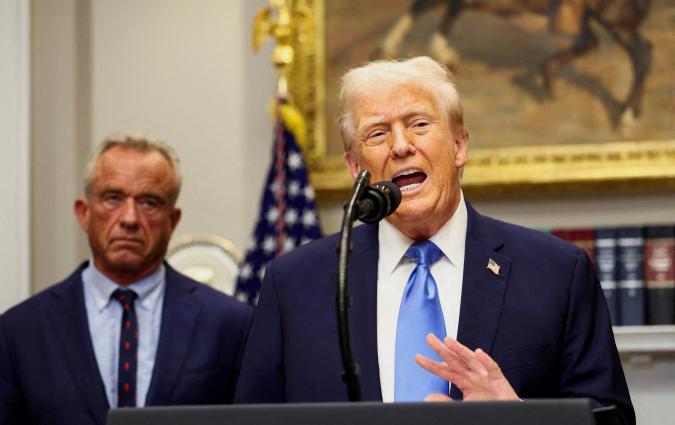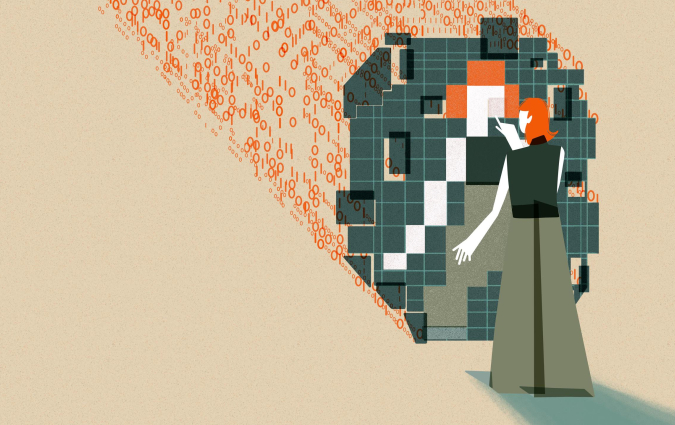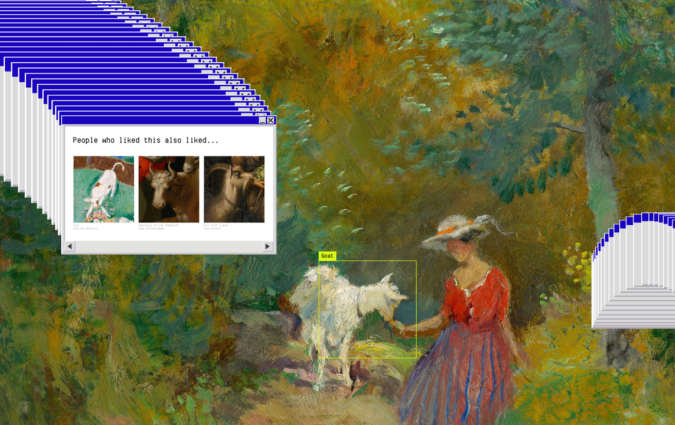How does press freedom die? Top journalists from Nicaragua, Venezuela and Kenya compare their notes
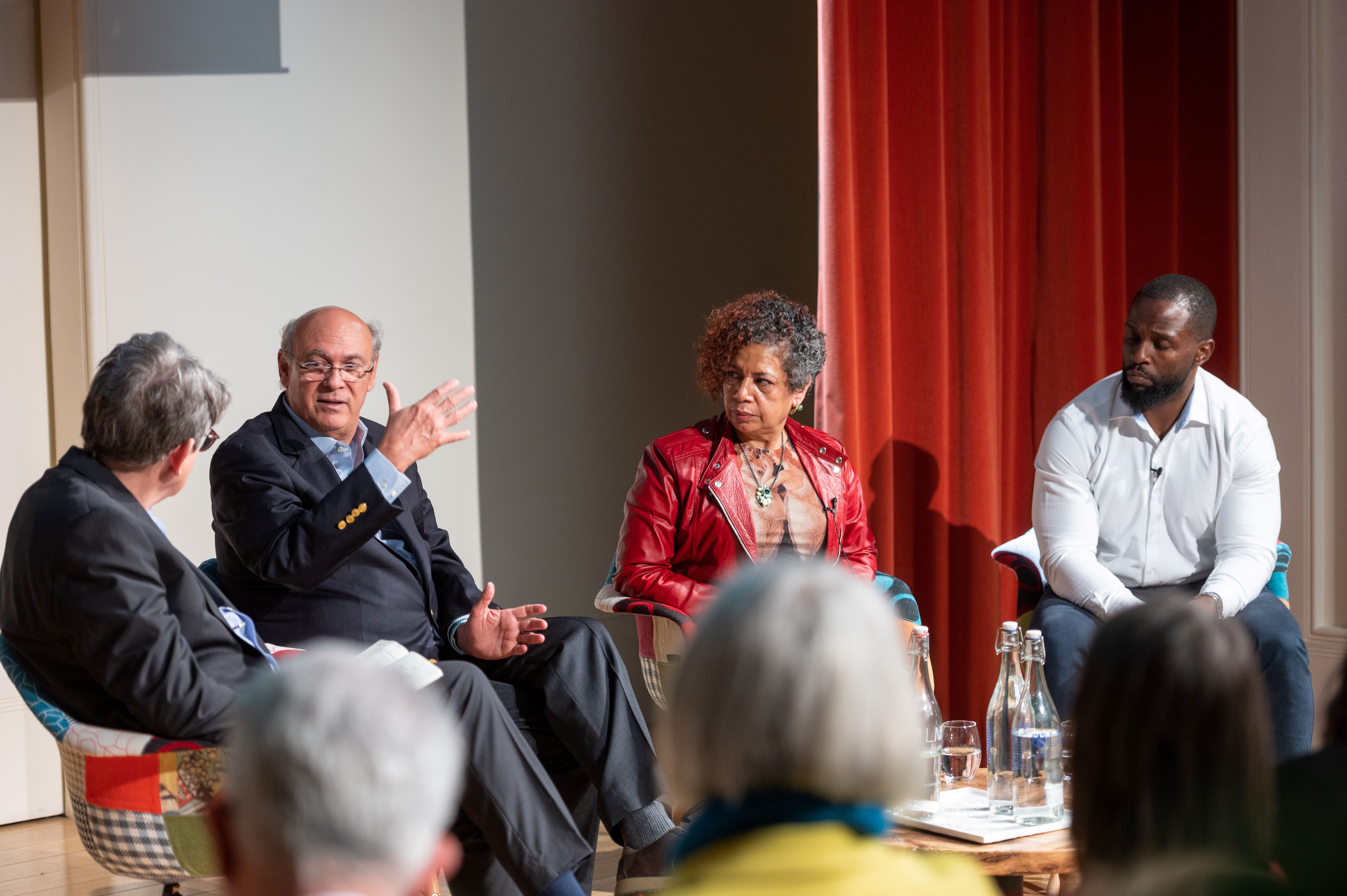
The panel talks on stage at the 2023 Reuters Memorial Lecture. Credit: John Cairns.
“Doing journalism under a dictatorship – to continue reporting and telling the truth – is an act of resistance.” This sentence from Carlos F. Chamorro's Reuters Memorial Lecture was echoed throughout the panel discussion that followed, featuring our Chair Alan Rusbridger and the two of the newest members of our Advisory Board: Venezuelan journalist Luz Mely Reyes and Kenyan investigative journalist John-Allan Namu.
Speaking about Chamorro's lecture, Rusbridger said: “I thought it was inspiring, in the way that you described the bravery of your colleagues and the determination to carry on. I also thought it was a warning because you were describing something that can so easily happen.”
The fight for press freedom
The repression of press freedom in Nicaragua that Chamorro described in his lecture sounded sadly familiar to Reyes, who's the co-founder of Venezuelan independent news site Efecto Cocuyo. “These kinds of authoritarian regimes learn from each other,” Reyes said. “We lost our democracy in less than 20 years. It’s something that was impossible to think 25 years ago.”
However, as with Nicaragua, there are those in Venezuela who are not giving up. “We have a lot of energy and a lot of people who believe in democracy.” Within the media, that translates to a rise in people doing good journalism, Reyes added. “It’s a dramatic situation, but we are still doing what we have to do.”
Kenya’s press is in a different position to that of Nicaragua and Venezuela, with a diverse media landscape despite challenges to press freedom. Kenya is rated 69th out of 180 on Reporters without Borders (RSF)’s 2022 Press Freedom Index, while Venezuela and Nicaragua are 159th and 160th respectively. However, there were aspects of Chamorro’s talk that Namu could relate to, especially in his experience as an investigative journalist.
“There was a springtime for press freedom and media freedom, broadly speaking. That was maybe about 20 years ago in Kenya. We’re now at a turning point that could either go very badly for our country or, depending on how we respond as citizens, very well,” Namu said, picking up on Chamorro’s description of the 1990s in Nicaragua as “a true springtime for freedom of expression.”
The crossroads that Kenya finds itself at is reflected across other African countries, Namu added. One of the biggest challenges the continent faces, he added, is “seeing young people specifically withdraw from the democratic process, be ambivalent or just generally distrustful of democracy, and the space that they’re withdrawing from is now being occupied by people who use the language of reform, use the language of progress but absolutely do not mean anything that they are saying.”
Within the news industry, Namu warned against “this kind of complacency that we’ve reached the promised land, that we can rest on our laurels.” This, he said, may lead to a decrease in professionalism in the media and allow the state to fill the gaps left by journalists and allows for the flourishing of fake news and misinformation.
“I think we are in the autumn of our understanding of what media freedom is, and my fear is that it could very quickly turn into a cold and long winter,” Namu said.
Protecting sources
In countries like Nicaragua, where speaking to journalists or even just being suspected of speaking to journalists can result in jail time, people are afraid to talk to Chamorro's colleagues. “That’s the first obstacle we have to overcome," he said. "How do you develop trust?”
He gave the example of obscuring sources’ faces and changing their voices to protect their identity, but even when taking these precautions, it’s very difficult for a person to agree to be a source. “Every time, it is more difficult to convince people, because it’s not a question of them being paranoid,” he said. It’s also not only the source themselves taking the risk. If the police in Nicaragua can't find the person they are looking for, Chamorro said, they often arrest their family members.
In Kenya, it’s standard practice to use encrypted messaging platforms to communicate with sources, but even these could be vulnerable, Namu said, mentioning a piece Haaretz published in December reporting an Israeli phone-hacking firm’s claims it can hack into Signal.
For journalists in Kenya and elsewhere in east Africa, Namu said, there is also another important question to consider when thinking about sources: “What happens once the information that the source gives becomes public? Is there going to be action? And the answer to that unfortunately is, many times there isn’t.” If there is no response from the government or other relevant actors, “the source is more or less left twisting in the wind.” In these cases, there is not much else journalists can do to protect them. “This has a chilling effect on every other source.”
How we got here and how to keep going
Israeli journalist Noa Landau, member of our Advisory Board and Deputy Editor of Haaretz, asked about the tipping point of democracy in Nicaragua and Venezuela, the moment when it started to be eroded, and whether anything should have been done differently then.
In Nicaragua, Chamorro said, this was a process that took 15 years and nothing changed overnight. However, President Ortega started attacking the press very early on, as soon as he returned to power in 2007. Reyes spoke about her own experience in Venezuela: “We learnt not to be so naive. People believe democracy is forever, and we’re showing you that's not the case.”
Helen Boaden, a member of our Advisory Board, asked Chamorro how he and other Nicaraguan journalists can be so resilient in the face of persistent persecution.
“We don’t pretend to be heroes," he said. "We are afraid. I guess what keeps us going is that there’s a sense of commitment to the people that have trusted us and to the people that have suffered much more than us. There has been so much suffering in Nicaragua but also hope, and what keeps me going is trying to give this hope a rationale, a basis, the support of evidence. Silence is the worst thing we can accept.”


